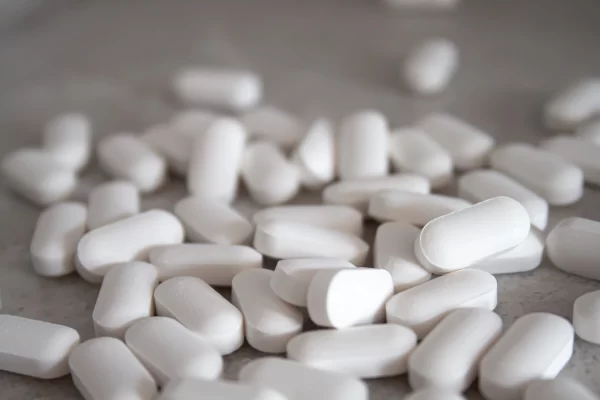Addiction is also a chronic disease related to other chronic diseases such as cardiovascular disease, cancer, and type II diabetes. When facing and recovering from your addiction problems, it’s also essential to maintain a healthy eating habit along with your journey. Lack of proper nutrients combined with alcohol or drugs can put a notable amount of stress on the body. The combination often creates agitations to the body’s ability to properly function, which can lead to electrolyte imbalances, vitamin deficiencies, and in some severe cases, it may lead to malnutrition and death.
Eating a healthy nutrition-rich diet helps you with your addiction recovery by keeping your body and mind to heal faster and work better. In order for your body and brain to function normally, it needs healthy foods and water. Food fuels the body functions throughout the day by breaking it down into glucose and other vital elements. The glucose is then released into your bloodstream to be used for energy. It helps you control your recovery steps by further supporting your body and mind to function well consistently, thus maintaining your aftercare health.
Eating healthy helps you with your addiction recovery stages in a number of ways, such as improving your focus, increasing your energy, stabilizing your mood, and making you feel better at resisting cravings for addictive substances such as drugs, vape, tobacco, and alcohol. Besides, nutrient deficiencies can make your addiction recovery more complicated by making you more vulnerable to distraction, cravings, depression, and fatigue. Eating healthy can help you correct your nutrient deficiencies and significantly improve your odds of successfully completing your recovery process and maintaining it long term.
The body needs a vivid variation of foods to support your recovery. While carbohydrates are a great source of energy, and the body also needs healthy fats and proteins to preserve for later use. Maintaining a balanced diet is the key to building a healthy lifestyle in addiction recovery.
Table of Contents
Food for Your Lungs
Sometimes addicts may have lung related problems due to excessive vaping, huffing, smoking, or lack of exercise. By functionally, our lungs allow us to breathe, and this simple act alone takes a lot of energy. Your addiction to vaping or smoking causes severe damage to your lung’s functionalities, plus a lack of healthy food intake worsens the effects of the problem. Foods rich in magnesium, antioxidants, and omega-3’s are a great source to provide sufficient support to your lungs, thus improving one’s blood flow and breathing pattern. Include more green leafy vegetables such as spinach, kale, moringa, and bok choy, as all these can be easily found in most grocery stores. While salmon, flax seeds or oils, and chia seeds are very high in omega-3’s, apples, kidney beans, berries, artichokes, and pinto beans are all high in several antioxidants.
Foods for Your Liver
Addictions such as inhalants, alcohol, or any other kinds of drugs that are injected into the skin can cause severe damage to the liver. The liver is the body part that is responsible for detoxifying dangerous chemicals and free radicals that a person digests. A poorly functioning liver can cause bad breath, headaches, skin problems, tiredness, allergies, and even weight gain. Even though addiction can cause unchangeable damage to one’s liver, some times, most of the damage can be reversed through remaining sober and following a healthy eating habit that can repair the damage. Studies prove that foods high in antioxidants can help to heal the liver, while diets high in sulfur can help to detoxify it. Prunes, berries, oranges, cantaloupe, pears, raisins, plums, pink grapefruit, and apples are all high in antioxidants. Onions, brussel sprouts, cabbage, lemon, garlic, broccoli, cauliflower, and beetroot are all detoxifiers and help you to eliminate any toxic buildup that the addiction or bad diet caused.
Foods for Your Brain
Any long term addiction, it may be tobacco, alcohol, or drugs, will likely be caused by some type of cognitive impairment. Your addiction may be of anything from memory loss to the inability to perform certain activities or remember things. In most cases, the lost cognitive abilities can be restored via a number of ways, including developing problem-solving skills, therapy, and healthy diet plans. Foods with omega-3’s include salmon and flax seeds, while diets with flavonoids include green tea, citrus fruit, and cocoa are effective in boosting your brainpower. Moreover, walnuts, ginger, lentils, avocados, and tomatoes are full of vitamins, minerals, and other healthy fats that can help in restoring brain cells and boost addiction recovery efforts.
Foods for Your Energy
It is very common to experience a lack of energy for addicts. It is common in their alcohol addiction days and their addiction recovery days too. Lack of energy can create all kinds of problems, such as stress, weight gain, and sleeping disorders. Healthy carbohydrates such as cereal, whole-grain bread, green leafy vegetables, and antioxidants are great for an energy boost diet. Also, honey is an excellent source of energy and is filled with various essentials that the body needs. All types of nuts such as almonds, pistachios, and peanuts are excellent sources of Vitamins A, B, and E, and contain minerals, calcium, phosphorus, potassium, magnesium, and iron.
Finally, Water is Everything
We all depend on water for our optimal health and survival. Water cleans the body and eliminates chemicals and toxins from kidneys and other vital organs. Instead of waiting for the thirst to thrust in, drink plenty of water throughout the day.
Your first step must be booking an appointment with an alcohol addiction treatment center. And they will guide you through your recovery steps as well as proper nutrition programs. Proper nutrition helps you to recover from your addiction. It is essential to maintain a healthy, well-balanced diet and consume the least amount of fat packaged foods or artificially flavored foods with loads of sugar. Avoid energy and soft drinks.











